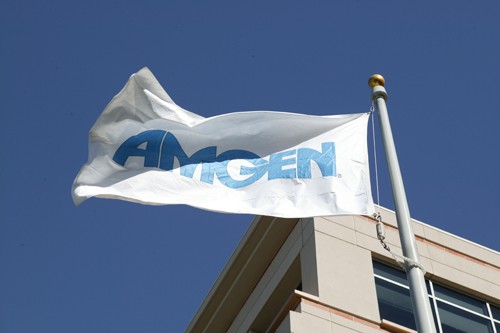
Amgen’s cholesterol drug Repatha has become the first PCSK9 inhibitor to be approved anywhere in the world, after a green light from the European Commission.
The go-ahead for Repatha (evolocumab) means Amgen has beaten arch-rivals Sanofi and Regeneron to the EU market, although the latter are still in with a shout to be the first to launch in the US after buying a priority review voucher from BioMarin last year.
The EC has approved Repatha for the treatment of patients with uncontrolled cholesterol who require additional intensive therapy to meet low-density lipoprotein cholesterol (LDL-c) targets, including use in combination with statins.
It can also be given alone or in combination with other cholesterol-lowering drugs in patients who are unable to tolerate statins, as well as in combination with other drugs for adult and adolescent patients with genetic conditions causing elevated cholesterol, including homozygous familial hypercholesterolemia (HoFH).
Amgen said the approval marked a “critical milestone for patients with uncontrolled cholesterol who require additional intensive LDL-c reduction”. The company has not yet revealed a price for the new drug but said it would be available in its first EU markets within the next few weeks.
It is estimated that 60% to 80% of high-risk patients in Europe are still unable to adequately lower their LDL-C levels with statins or other approved cholesterol-lowering agents, raising their risk of cardiovascular disease (CVD).
The healthcare cost of CVD in the EU is approximately €106bn per year, according to the company. Given the size of the market – with potentially millions of patients eligible for treatment – analysts have predicted that Repatha could eventually achieve sales in the region of $5bn a year.
In the US, the FDA is due to deliver a verdict on Sanofi and Regeneron’s Praluent (alirocumab) by July 24, a month ahead of the August 27 deadline for Repatha, although the agency could elect to give them the nod at the same time.
FDA advisory committee meetings held for both drugs suggest however that they may get a narrower indication in the US than in Europe, as the panels favoured a restricted label in high-risk patients with genetic conditions rather than wider use until data on cardiovascular outcomes is available.
Some pharmacy benefit managers (PBMs) in the US – including Prime Therapeutics – have suggested they may restrict use of the drugs to patients with genetic cholesterol disorders. Prime said recently its own data suggests significant improvements can be achieved in patients by optimising statin use, for example by boosting adherence to therapy.
Sanofi/Regeneron and Amgen both have large-scale cardiovascular outcomes trials in hand, with data due within the next couple of years.




